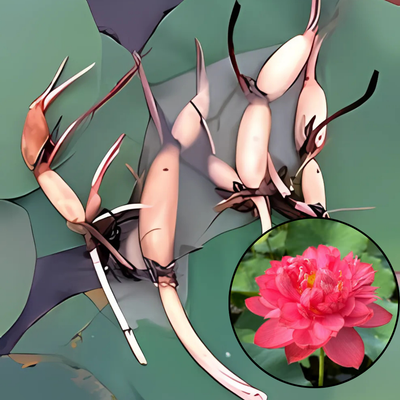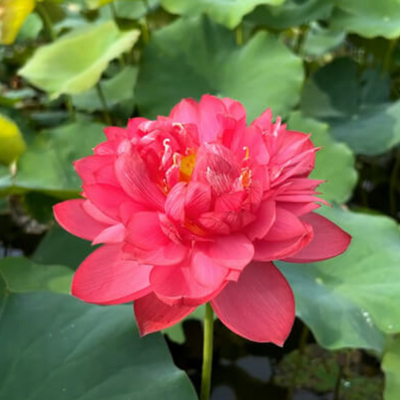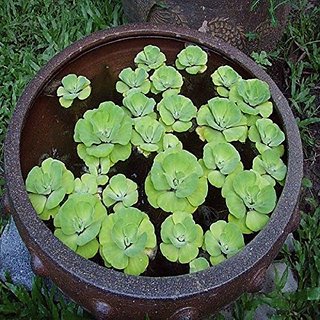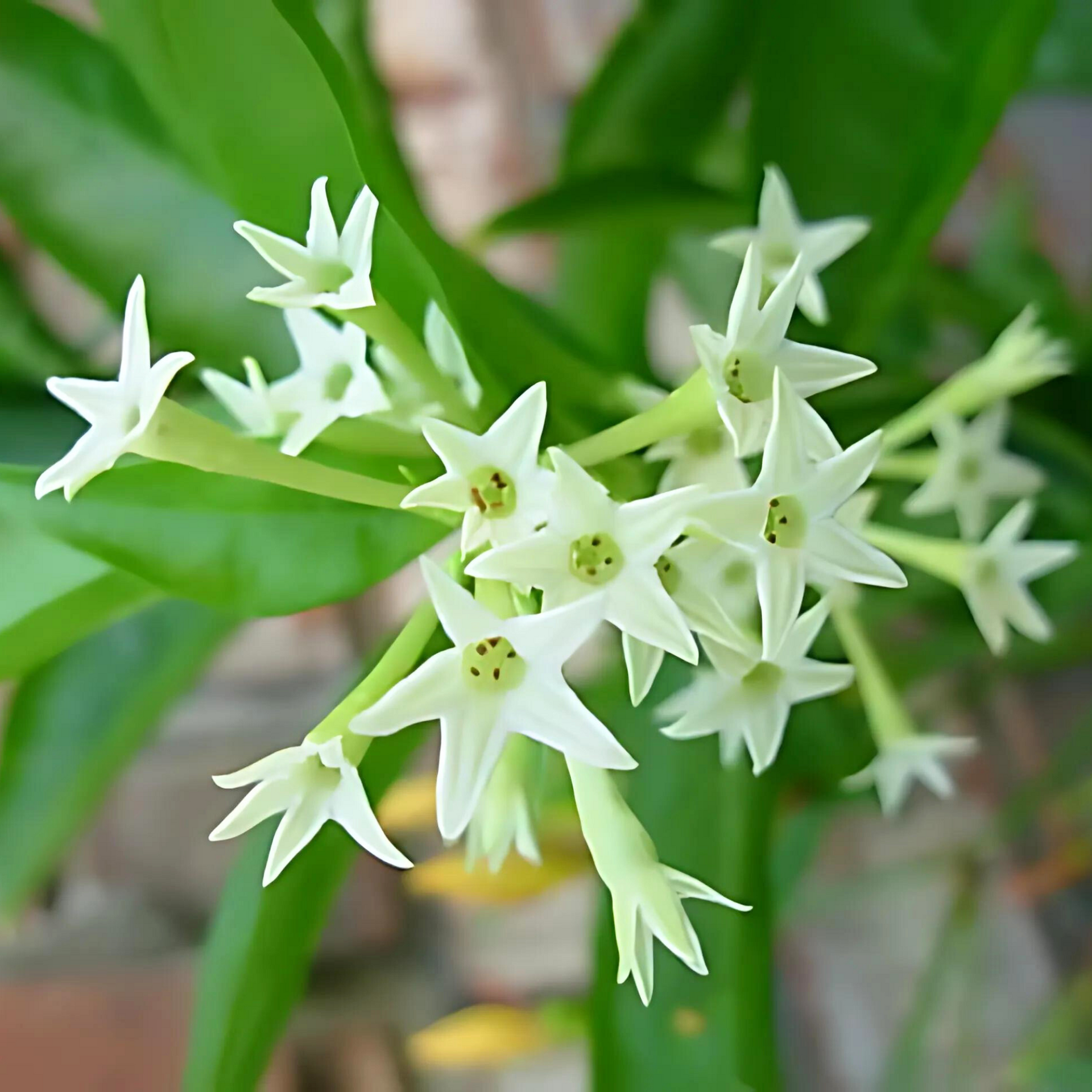
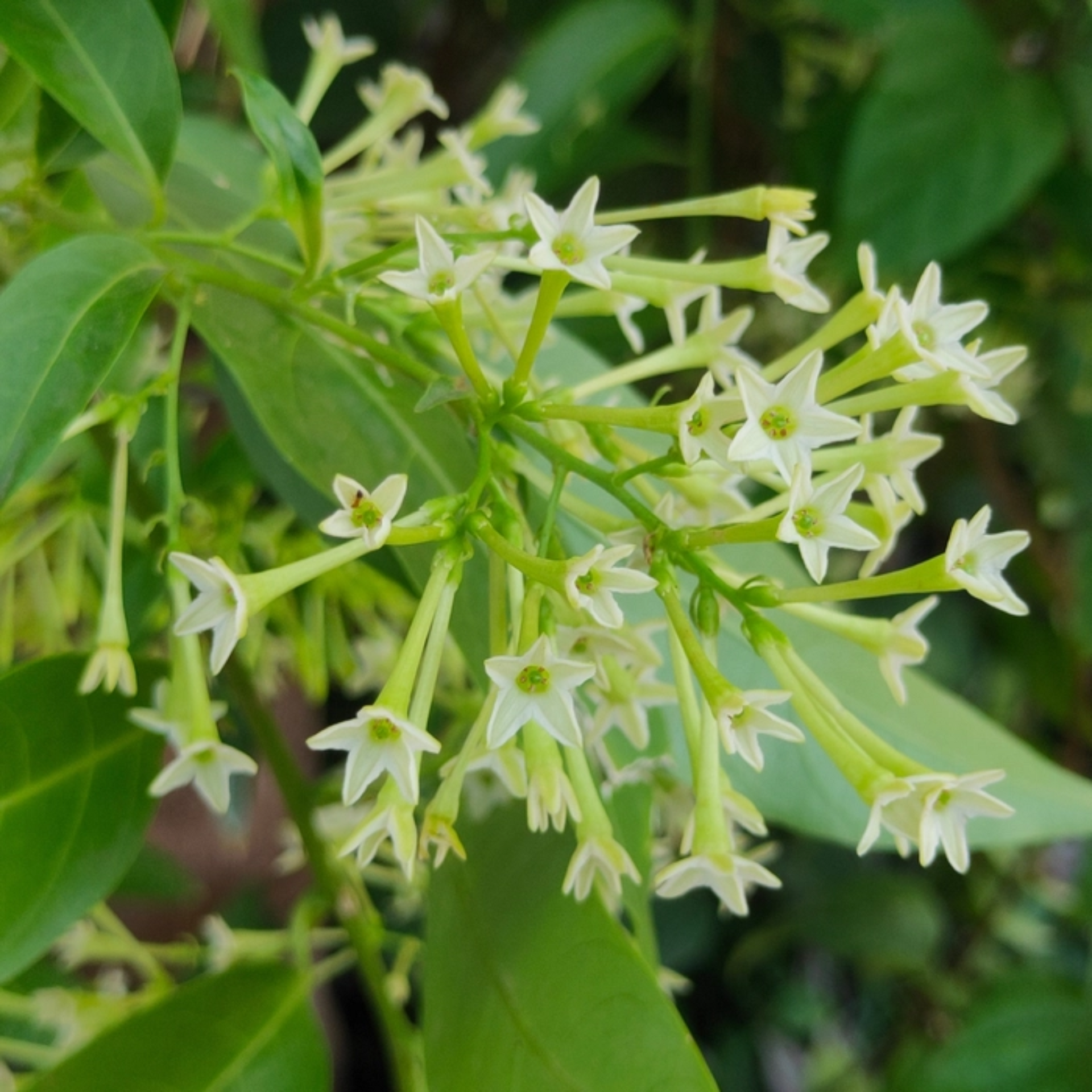
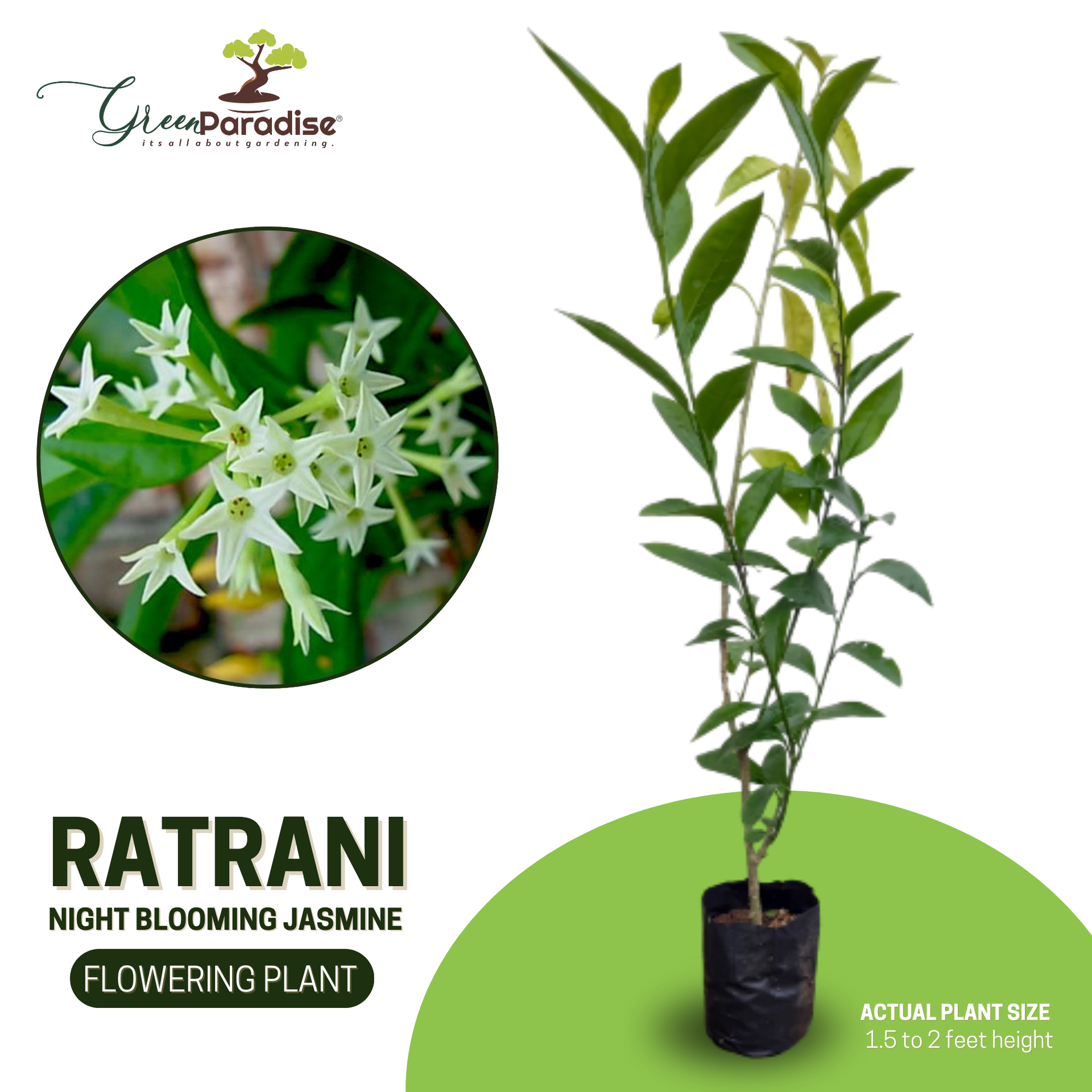
Raat Ki Rani/Night Blooming Jasmine Beautiful Flower Plant
Guaranteed Safe Checkout
Embracing the Mystique: Night-
Blooming Jasmine Plant
The world of flora is a treasure trove of diversity, each plant bringing its unique charm to the botanical tapestry. Among these, the Night-Blooming Jasmine, scientifically known as Cestrum nocturnum, stands out as a fascinating and enigmatic member. Its delicate blossoms and intoxicating fragrance make it a captivating addition to any garden, but what truly sets it apart is its nocturnal nature. In this article, we will delve into the alluring world of the Night-Blooming Jasmine plant, exploring its characteristics, cultivation, and the enchanting secrets it holds.
A Fragrant Symphony in the Night
- The Night-Blooming Jasmine, despite its name, does not belong to the Jasmine family.
- It is actually a member of the Solanaceae family, which includes tomatoes, potatoes, and bell peppers.
- Originating from the West Indies, this plant has traveled the world due to its unique and beguiling qualities.
- The most striking feature of this plant is, as the name suggests, its night-blooming flowers.
- While most plants proudly display their blossoms during the day to attract pollinators, the Night-Blooming Jasmine takes a different approach.
- Its petite, tubular, greenish-white flowers prefer to unfurl their petals under the moon's gentle glow.
- This adaptation has evolved to attract night-flying pollinators like moths and bats, who are drawn in by the plant's sweet and seductive scent.
The Enigmatic Beauty
- The Night-Blooming Jasmine is not just a delight for the olfactory senses; its appearance is equally captivating.
- This evergreen shrub can grow up to 10 feet tall, displaying clusters of lance-shaped leaves that add to its aesthetic appeal, even when not in bloom.
- The flowers, which typically start to open in the late afternoon and release their full fragrance after sunset, exude a perfume that is often described as a heady mix of citrus, honey, and gardenia.
- The fragrance, though enticing, can be overpowering for some, so it's advisable to plant it away from sleeping areas or windows.
- The scent is most potent during the summer months when the plant is in full bloom.
Cultivating the Night-Blooming Jasmine
Caring for the Night-Blooming Jasmine requires some attention, but the rewards are worth the effort.
Here are some essential tips for its cultivation:
1. Location is Key:
- Plant your Night-Blooming Jasmine in a spot that receives partial to full sunlight during the day but is shielded from strong winds.
2. Soil Matters:
Well-draining soil is crucial. A mixture of potting soil and perlite works well for potted plants.
3. Water Wisely:
Keep the soil evenly moist but not soggy. Water the top inch of soil when it appears dry.
4. Pruning:
pare the factory regularly to maintain its shape and encourage new growth.
5. Fertilization:
Feed it with a balanced, all-purpose fertilizer during the growing season (spring and summer).
6. Pest Control:
Keep an eye out for aphids and spider mites, common pests that may infest Night-Blooming Jasmine. Treat them promptly.
The Magic of Nighttime Blooms
- Cultivating Night-Blooming Jasmine isn't just about adding a unique plant to your garden; it's also about creating an atmosphere of mystery and romance.
- Imagine sitting in your garden under a starlit sky, surrounded by the intoxicating fragrance of these delicate blossoms.
- It's a sensitive experience like no other.
- But beyond its aesthetic and aromatic allure, the Night-Blooming Jasmine has also found its place in various cultures.
- In some parts of the world, it is believed to bring good luck and is associated with love and passion.
- In others, it's considered a symbol of quiet strength due to its ability to thrive in the darkness.
Unlocking the Secrets of Growing Night-Blooming
Jasmine: A Guide to Cultivating Beauty in the Dark
Night-blooming jasmine, scientifically known as Cestrum nocturnum, is a remarkable and enchanting plant that adds a touch of mystique to any garden. As the name suggests, it's a fragrant flower that releases its intoxicating aroma during the nighttime, making it a unique and cherished addition to gardens around the world. If you're eager to cultivate this captivating plant, you're in for a delightful journey. This article will serve as your guide to successfully growing night-blooming jasmine.
Understanding Night-Blooming Jasmine
- Before we dive into the intricacies of cultivation, it's essential to grasp the essence of this fascinating plant.
- Native to the West Indies, night-blooming jasmine is not a true jasmine; it belongs to the Solanaceae family.
- It's often called "Queen of the Night" due to its mesmerizing fragrance that peaks in the evening, inviting moths and other nocturnal pollinators.
- The flowers are small, tubular, and usually white or pale green, with an aroma that can fill the entire garden.
Selecting the Right Location
- The first step in successfully growing night-blooming jasmine is selecting the right location.
- These plants thrive in warm, tropical climates, so if you're in a region with cold winters, consider growing it in a pot that you can bring indoors during the colder months.
- In your garden, find a spot that receives partial to full sun during the day.
- Night-blooming jasmine prefers well-drained soil with organic matter.
- Insure that the planting area has good air rotation to help fungal conditions.
Planting Your Night-Blooming Jasmine
Once you've chosen the perfect spot, it's time to plant your night-blooming jasmine:
Prepare the Soil:
Amend the soil with compost to improve its fertility and drainage. Night-blooming jasmine doesn't like soggy roots, so good drainage is crucial.
Dig a Hole:
Dig a hole that's about twice as wide as the root ball but no deeper. Place the Plant in the hole at the same position it was in the pot.
Mulch:
Apply a layer of mulch around the plant to help retain moisture and regulate soil temperature.
Watering:
Water your jasmine thoroughly after planting and keep the soil consistently moist, but not waterlogged.
Caring for Your Night-Blooming Jasmine
Caring for night-blooming jasmine is relatively straightforward, but it requires attention to detail:
Pruning:
Regular pruning will help your plant maintain a compact and bushy shape.pare after the flowering season to encourage new growth.
Fertilizing:
Feed your jasmine with a balanced, slow-release fertilizer during the growing season, typically in spring and summer.
Pest Control:
Keep an eye out for common garden pests like aphids and spider mites. Insecticide cleaning or neem oil painting should be used immediately to treat any infestations.
Winter Care:
If you live in a cold climate, bring your potted night-blooming jasmine indoors before the first frost. Keep it in a sunny spot, and reduce watering during the winter months.
Enjoying the Fragrant Rewards
- The ultimate joy of growing night-blooming jasmine comes when it graces your garden with its fragrant blossoms.
- On warm summer evenings, especially around dusk and into the night, you'll be treated to a scent that's simply enchanting.
- Remember that patience is key when cultivating this plant.
- It might take a year or two for your night-blooming jasmine to reach its full blooming potential.
- But the wait is worth it, as the aroma and beauty it brings to your garden are unparalleled.
- In conclusion, growing night-blooming jasmine is a rewarding experience for any gardening enthusiast.
- With the right location, proper care, and a little patience, you can cultivate this unique and captivating plant, turning your garden into a fragrant oasis that comes alive under the cover of darkness.
- So, get ready to embark on this journey and let the Queen of the Night weave its magic into your outdoor space.

